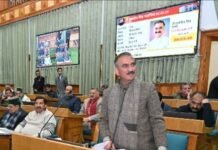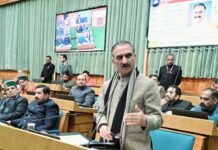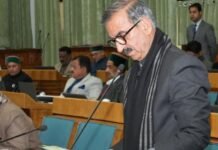In a high-level consultative session held near Shimla at Hotel Deuceit, Himachal Pradesh Vidhan Sabha Speaker Kuldeep Singh Pathania offered his considered perspective on the central government’s proposed “One Nation, One Election” framework. Pathania, who was specially invited by the Joint Parliamentary Committee formed to examine the constitutional and administrative contours of simultaneous elections, emphasized that although the Constitution originally provided for synchronized elections, political instability and fractured mandates in the past led to the current staggered electoral timeline.
The Speaker acknowledged that holding simultaneous elections can reduce administrative costs and minimize governance disruptions, but he cautioned against implementing the model without addressing deeper constitutional and democratic concerns. Referring to the 129th Constitutional Amendment Bill, 2024, and related legislation, Pathania noted that the initiative to realign state and parliamentary elections is ambitious, but it must ensure that the original framework of the Constitution is preserved. He raised critical concerns about whether the proposed amendments could inadvertently curtail the legislative powers of the Parliament and whether the reduced tenure of assemblies under a uniform election calendar would align with democratic principles.
He underlined the supremacy of the people in a democratic setup, where the legislature, executive, and judiciary derive their authority from the public’s will. Therefore, any structural change, he argued, must pass the test of public interest, transparency, and constitutional integrity. Pathania stressed that if the proposal is to become a reality, it must be complemented by robust administrative mechanisms that uphold the spirit of cooperative federalism and inclusivity.
Welcoming the dialogue and the committee’s outreach, Pathania said that the initiative could prove beneficial in the long run if implemented through consensus and careful planning. During the meeting, he also responded to committee member Anurag Thakur’s inquiry about anti-defection laws, asserting that such provisions should be further strengthened. He suggested that any elected representative violating anti-defection laws should be barred from contesting elections for six years, a move he said would reinforce democratic discipline.
Deputy Speaker Vinay Kumar and Leader of the Opposition Jai Ram Thakur echoed Pathania’s views during the meeting, signalling bipartisan agreement within Himachal’s political leadership on the need for further discussion and refinement of the proposal. Committee Chairperson P.C. Choudhary honoured Speaker Pathania with a bouquet in recognition of his contributions. Several prominent parliamentarians including Anurag Thakur, Bansuri Swaraj, Dr. Sanjay Jaiswal, Sukhdev Bhagat, Chhotelal, Kalyan Banerjee, T.M. Sevaganpati, Shambhavi, Chandan Chauhan, Bhubaneswar Kalita, Kavita Patidar, P. Wilson, and Vijay Kumar Hansdak participated in the session, engaging in an extensive Q&A with the Speaker.
As the Joint Parliamentary Committee continues its consultations across states, the Shimla meeting stands out for the depth of dialogue and the clarity with which concerns and opportunities surrounding the One Nation, One Election initiative were laid out. It reflects a growing national discourse where electoral reforms are increasingly being examined through the prism of constitutional balance and democratic maturity.
This is an auto web-generated news web story. #OneNationOneElection #HimachalPradesh #KuldeepSinghPathania #IndianPolitics #JPCMeeting #ElectoralReforms #DemocracyIndia





